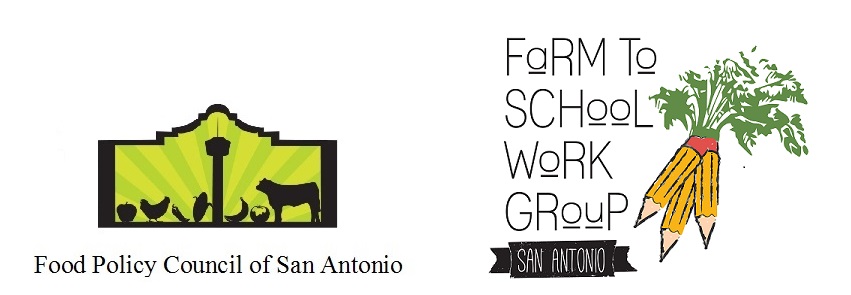
Food Policy Council of San Antonio's
|
The San Antonio Farm to School Work Group is a sub-group of the Food Policy Council of San Antonio. We are tasked to determine where there is an interest in Bexar County and San Antonio school districts in order to develop a program to incorporate local produce into our schools and teach children where food comes from.
“Farm to School” is a national term that strives to bring locally produced foods into school cafeterias. Schools also incorporate nutrition-based curriculum with experiential learning opportunities such as farm visits, chef demonstrations, gardening and related sustainable programs. As a result of Farm to School, students have access to fresh, local foods, and farmers have access to new markets through school sales.
Farm to School provides a model for positively influencing children’s eating habits through school cafeteria improvements, hands-on nutrition education, and community involvement and support.
Thank you for taking the time to answer this survey. Your participation is critical as we work together to build a healthy community and a strong local food system.
“Farm to School” is a national term that strives to bring locally produced foods into school cafeterias. Schools also incorporate nutrition-based curriculum with experiential learning opportunities such as farm visits, chef demonstrations, gardening and related sustainable programs. As a result of Farm to School, students have access to fresh, local foods, and farmers have access to new markets through school sales.
Farm to School provides a model for positively influencing children’s eating habits through school cafeteria improvements, hands-on nutrition education, and community involvement and support.
Thank you for taking the time to answer this survey. Your participation is critical as we work together to build a healthy community and a strong local food system.